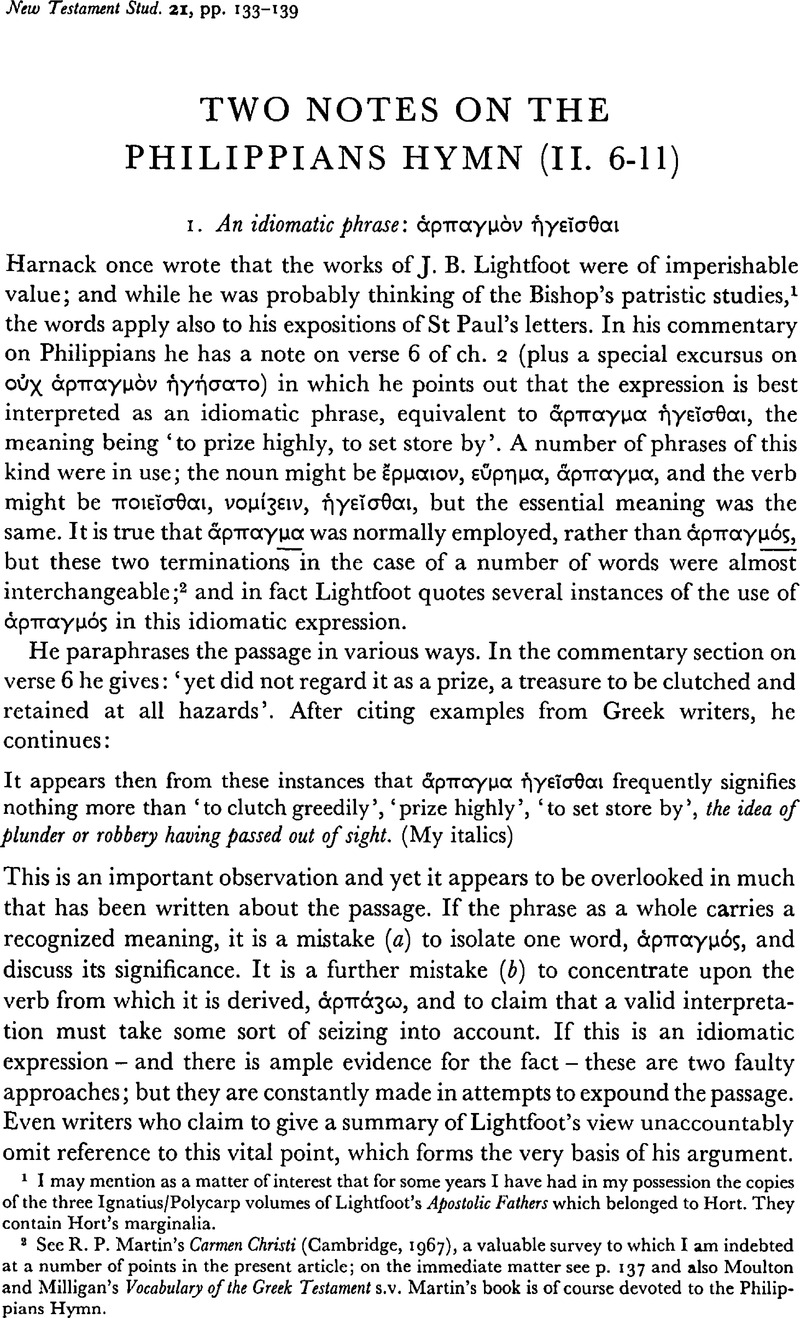Article contents
Two Notes on the Philippians Hymn (II. 6-11)
Published online by Cambridge University Press: 05 February 2009
Abstract

- Type
- Short Studies
- Information
- Copyright
- Copyright © Cambridge University Press 1974
References
1 I may mention as a matter of interest that for some years I have had in my possession the copies of the three Ignatius/Polycarp volumes of Lightfoot's Apostolic Fathers which belonged to Hort. They contain Hort's marginalia.
2 See Martin's, R. P.Carmen Christi (Cambridge, 1967), a valuable survey to which I am indebted at a number of points in the present article; on the immediate matter see p. 137 and also Moulton and Milligan's Vocabulary of the Greek Testament s.v. Martin's book is of course devoted to the Philippians Hymn.CrossRefGoogle Scholar
1 Lightfoot's work is still in print. My references come from the edition of 1879 (London).
1 Jaeger, W. W. in Hermes L (1915), 537–53.Google Scholar
1 Z.N.W. XXIX (1930), 115–28: οὐχ ⋯ρπαγ⋯ν ⋯γ⋯σατο bei den griechischen Kirchenvätern.
2 Eusebius' Commentary on St Luke, 6.
3 Even if the negative is taken closely with the noun I do not think that this rules out recognition of the idiomatic use of the whole phrase.
4 Cf. Moffatt: ‘Though he was divine by nature, he did not set store upon equality with God’; Westminster Version: ‘did not set great store on his equality with God’.
1 Studien zu Antike und Urchristentum, 11, 180. According to Käsemarm the pre-existent Christ had his place as the Redeemer in glory, but refused to treat it as ‘an existing possession’ and utilize it for his own advantage (Exegetische Versuche, 1, 69 f.).
2 N.T.D. VIII, 109.
3 Studien und Kritiken, Heft 4, pp. 858 ff., as quoted by Vincent, M. R., Philippians and Philemon (1897).Google Scholar
1 Martin refers to Vincent's commentary here and there but does not appear to make use of this section, omitting any mention of Dorner or of Vincent's devastating (as it seems to me) confutation of the whole theory.
The only kind of godlikeness in question in Gen. iii. 5 was obtained, according to iii. 22 (‘the man has become as one of us, knowing good and evil’). Far from any other divine attributes being involved, he was not even immortal (22 b).
- 1
- Cited by


